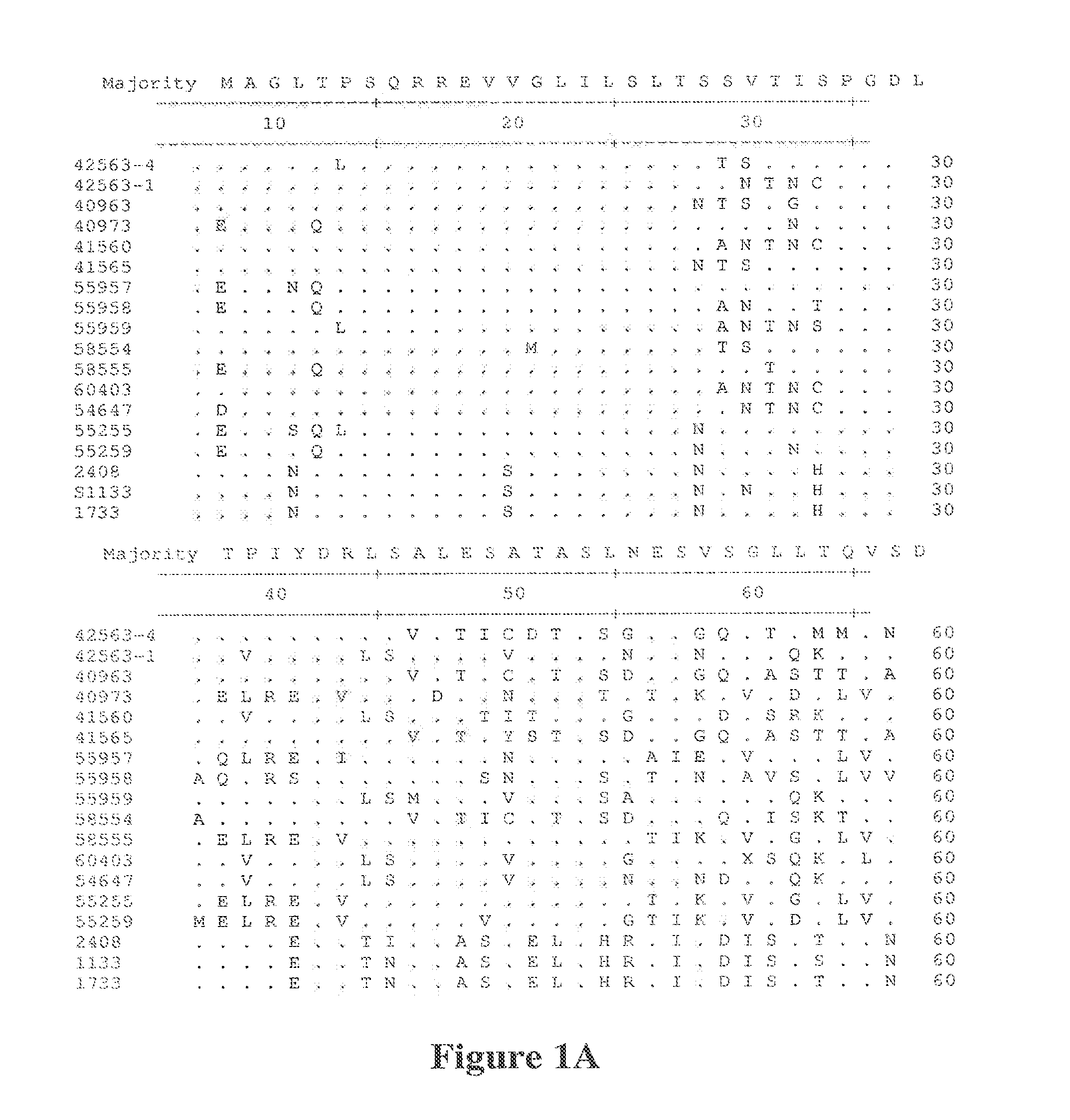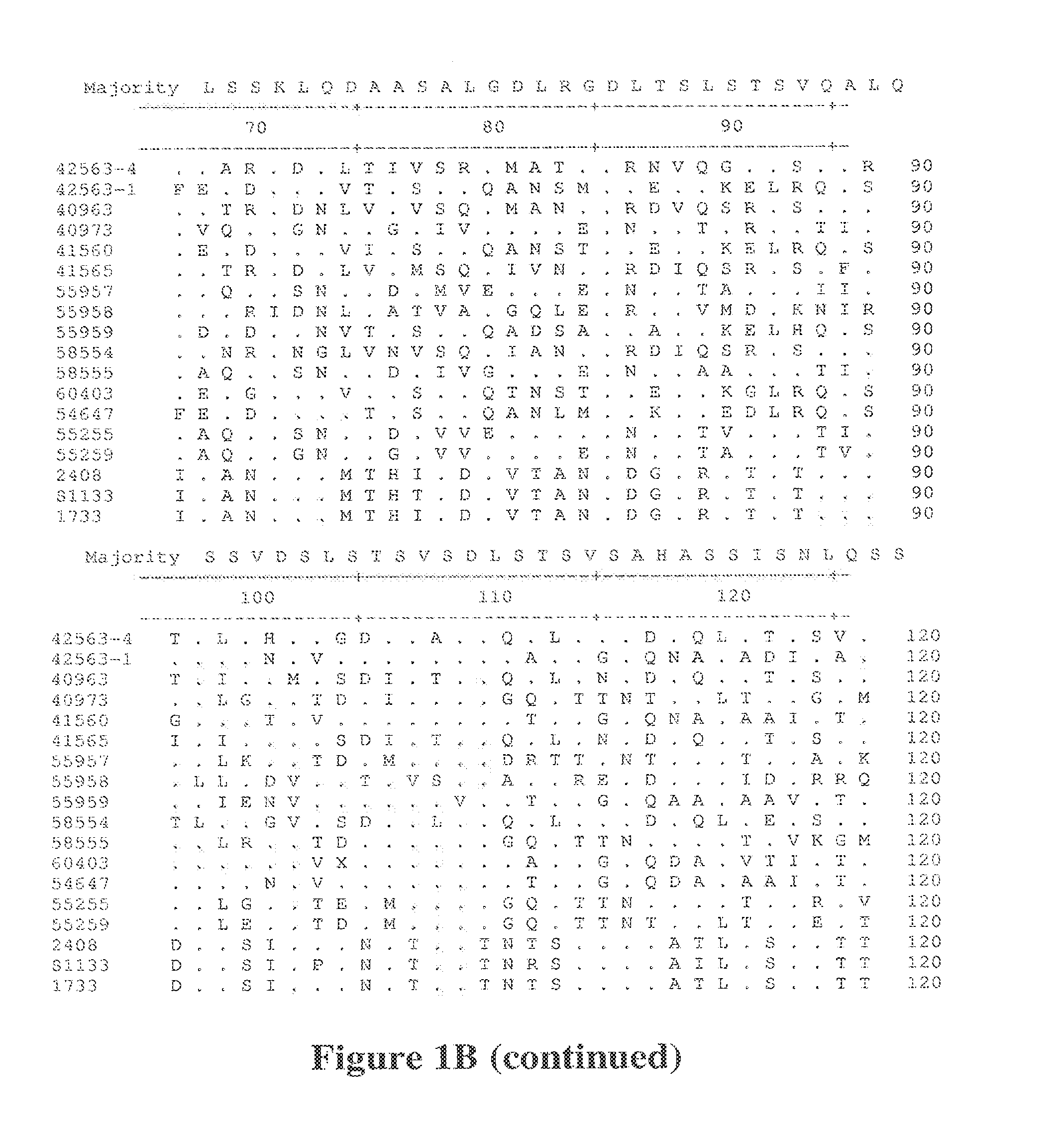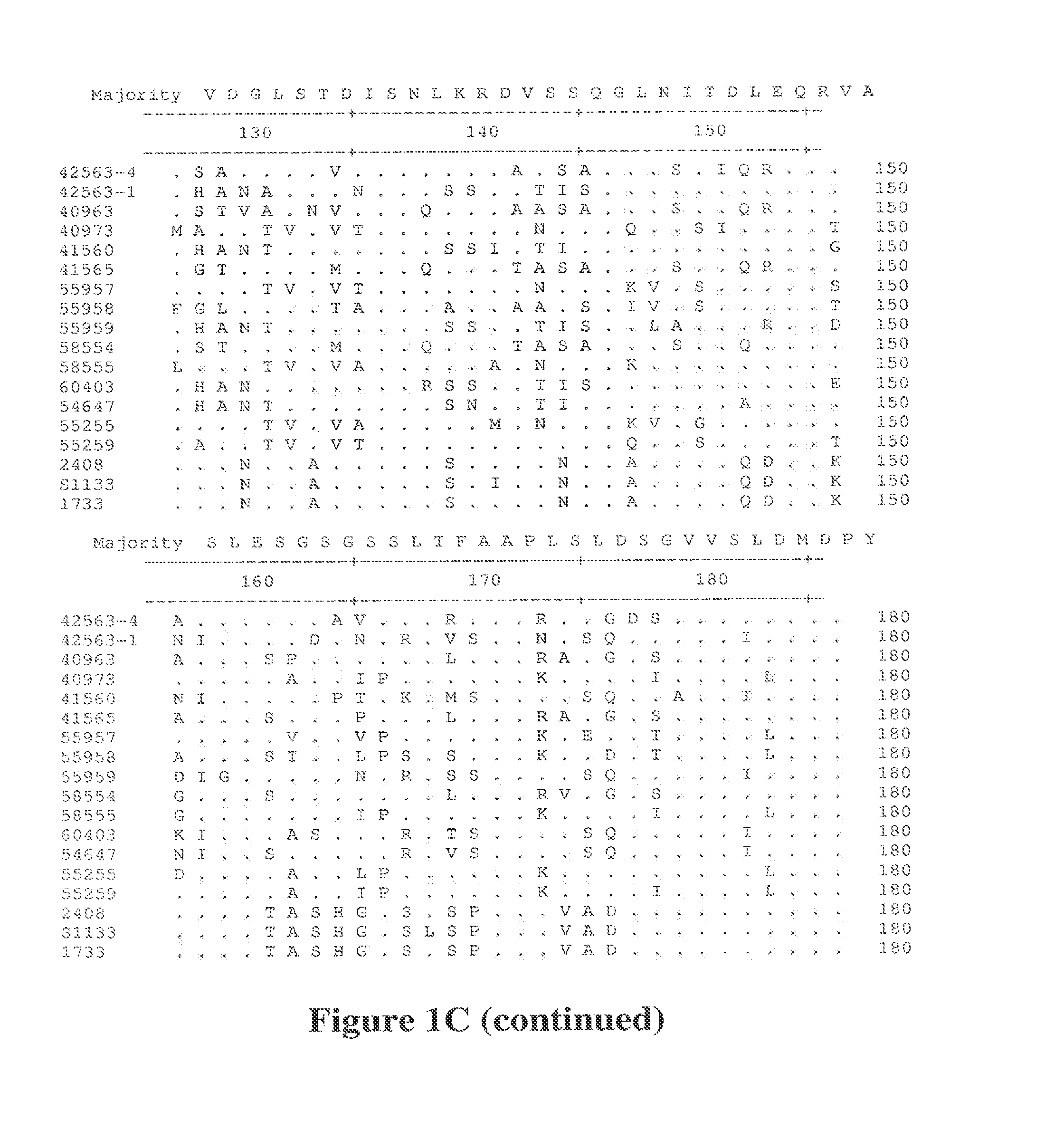Reovirus compositions and methods of use
a technology of reovirus and composition, which is applied in the field of new strains of avian reovirus, can solve the problems of increasing the mortality of affected chicken populations, shortening and clubbing of intestinal villi, and reducing the growth rate, body weight and siz
- Summary
- Abstract
- Description
- Claims
- Application Information
AI Technical Summary
Benefits of technology
Problems solved by technology
Method used
Image
Examples
example 1
[0075]This Example describes the isolation of avian reovirus strain 40973 and related viruses.
Viruses
[0076]Reovirus field isolates, chicken / GA 40973 / 2005, chicken / AL 40963 / 2005, chicken / GA 41560 / 2005, and chicken / GA 41565 / 2005 were isolated at the Poultry Diagnostic and Research Center at the University of Georgia, from the intestines or feces of chickens exhibiting enteritis. Field isolate chicken / GA 46118 / 2005 was isolated from a proventricular plaque from an experimentally infected bird. Table 1 provides a summary of the viruses characterized or referred to in all of the studies cited in the Examples. All viruses were isolated and propagated in primary chicken embryo liver cells prepared from 9-11 day of embryonation specific pathogen free (SPF) embryos. All isolates were passaged a total of four times. Upon the development of 70-80% cytopathic effect, observed as syncytial formation, the cell cultures were frozen and stored at −80° C. Each cell culture was frozen and thawed thre...
example 2
[0084]This example describes the in vivo evaluation of reovirus isolate 40973, and shows that strain 40973 adversely affects the growth of chickens.
Virus Isolation
[0085]A reovirus field isolate was isolated in primary chicken embryo liver cells (CeLic) from the intestines of 13-day-old commercial broilers experiencing a severe clinical presentation of Runting Stunting Syndrome. Briefly, intestines were homogenized in virus transport medium containing antibiotics, and filtered through a 0.45 micron sterile filter. Complete monolayers of primary CeLic were inoculated with 0.2 ml of the intestinal homogenate. Cell cultures were examined daily. The cell cultures were frozen and stored at −80° C. when 70-80% cytopathic effect, noted as syncytial formation, was obtained. Cell cultures were frozen and thawed three times before subsequent cell culture passages or titration.
[0086]Titration of virus strain 40973 was performed in primary CeLic in a 96 well microtiter format. Bri...
example 3
Virus Isolation
[0089]Reovirus field isolates, chicken / GA 40973 / 2005, chicken / GA 41560 / 2005, chicken / GA 41565 / 2005, were isolated at the Poultry Diagnostic and Research Center at the University of Georgia, from the intestines or feces of chickens exhibiting RSS / enteritis. Field isolate chicken / GA 46118 / 2005 and chicken / AL 40963 / 2005, were isolated from the proventriculi of RSS-affected experimental birds. Organs (proventriculi or intestines) from clinically-affected chickens were individually homogenized in virus transport media with antibiotics. The homogenized tissues were filtered through a 0.45 micron syringe filter. The filtrates were incubated with Reovirus S1133 antisera (Charles River, SPAFAS, Wilmington, Mass.) at 37° C. for 1 hour. Following neutralization, 0.2 ml of homogenate was inoculated in primary chicken embryo liver cells and cultured for a total of four passages. Upon the development of 70-80% cytopathic effect, observed as syncytial formation, the cell cultures we...
PUM
 Login to View More
Login to View More Abstract
Description
Claims
Application Information
 Login to View More
Login to View More - R&D
- Intellectual Property
- Life Sciences
- Materials
- Tech Scout
- Unparalleled Data Quality
- Higher Quality Content
- 60% Fewer Hallucinations
Browse by: Latest US Patents, China's latest patents, Technical Efficacy Thesaurus, Application Domain, Technology Topic, Popular Technical Reports.
© 2025 PatSnap. All rights reserved.Legal|Privacy policy|Modern Slavery Act Transparency Statement|Sitemap|About US| Contact US: help@patsnap.com



